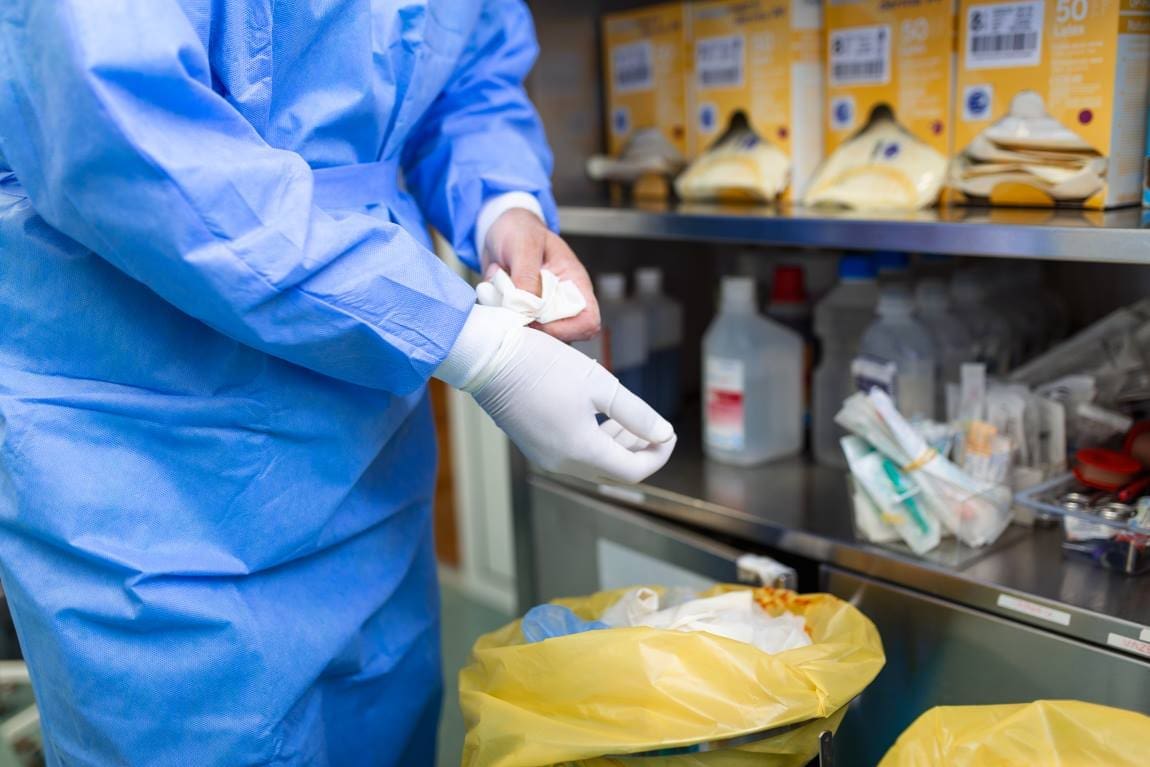Researchers from Roskilde University are leading an ambitious project called CircleHealth, which aims to reduce the consumption of plastic and textiles in hospitals across three Danish regions. The project, which is part of the national partnership Trace focusing on circular economy in plastic and textiles, brings together 11 partners across the supply chain to tackle hospital waste and promote recycling.
Denmark has a higher plastic consumption rate than the European average, with hospitals accounting for a significant portion of this usage. CircleHealth is set to address this issue by focusing on reducing textile and plastic waste in hospitals, aiming to foster a greener transition in the healthcare sector.
Kristian Syberg, Associate Professor at Roskilde University, leads the project alongside Postdoc Nikoline Oturai. Oturai believes there are significant opportunities to lower plastic consumption in healthcare, where single-use plastic items are often seen as essential for maintaining hygiene and patient safety.
“Products and protective equipment made of single-use plastic are historically a fairly new concept. We need to pause and reconsider whether some of the current routines can be scaled back. For example, can we reduce the use of disposable gloves by returning to traditional handwashing practices? You don’t actually need gloves to turn a patient in bed,” says Oturai.
Oturai also notes that many healthcare professionals are keen to reduce plastic consumption. However, in the fast-paced environment of hospitals, sustainability is often difficult to prioritize, with single-use plastic being a quick and easy solution.
Involving the entire supply chain
Oturai will conduct interviews and observations at hospitals in the Zealand, Capital, and Central Denmark regions this fall. Her aim is to explore opportunities for simplifying work processes while promoting collaboration across departments, hospitals, and regions.
“There is a significant potential for reductions if this project succeeds in sharing best practices,” says Oturai.
She emphasizes the importance of involving all levels of the supply chain. While procurement departments may purchase reusable or recyclable products, if hospital staff are not properly educated on how to sort or reuse them, the impact will be minimal.
“Typically, it’s ‘those on the frontlines’ who see the challenges most clearly and can offer practical solutions that work in everyday situations. Hospital staff are busy focusing on their core tasks, so it can be hard to get everyone on board if they don’t see the immediate benefits. That’s what CircleHealth aims to address by involving as many people as possible,” she adds.
The project is anchored at Roskilde University’s new Center for Interdisciplinary Plastic Research (CIPR), which officially opens on September 12. The center will address plastic-related challenges from multiple scientific perspectives.
Kristian Syberg, Nikoline Oturai, and their colleagues hope to work more closely with hospital staff and are considering developing a training course to educate and organize personnel in reducing single-use plastic consumption in hospitals.
About CircleHealth project
- Circular principles: The project focuses on Reduction, Reuse, product life extension, and Recycling of resources.
- Key products: White hospital uniforms, single-use examination gloves, and Styrofoam packaging boxes.
- Partners: The project includes Region Zealand, Capital Region, Central Denmark Region/CFSH, ABENA, BEWI, Midtvask, DTU, AAU, Roskilde University, Kolding Design School, and Gate21.
- Timeline: CircleHealth runs until the end of 2026 and is funded by Innovationsfonden under the Innomission program.
The project aims to set a new standard for sustainability in healthcare, reducing the sector’s environmental impact while maintaining safety and hygiene standards.
Featured image credit: stefamerpik | Freepik
Source: Roskilde Universitet




